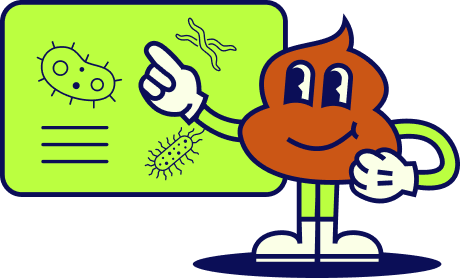Frequently Asked Questions

No. Our donors are regularly compensated to participate in our program. Costs for testing are covered by Ferring.
No. Our donors must use the restrooms at our facility to donate. This ensures that a donation is traceable to a specific trained, screened, and qualified donor.
In addition to blood, stool, and COVID-19 screening, donors must answer initial health history questions and ongoing health questions to ensure they are eligible to donate.
Yes! We have a seating area that includes beverages and snacks.
Donors will be compensated $30 for each qualifying donation (paperwork filled out completely at the time of donation, donation meets the minimum weight requirement of 70 g, and donor attends follow-up blood and COVID-19 screenings).
Compensations are tied to your blood screening due dates and are directly deposited into your banking account approximately every six weeks.
No. We try to make it as simple as possible for you to come in and provide your donation and be on your way. No appointments necessary.
The material needed for stool screening is taken from a donor’s regular donations. Easy!
COVID-19 screening is required for participating, and is scheduled for donors approximately every 2 weeks. The donor must be able to visit the Ferring facility at the regularly scheduled COVID-19 test date. The test is a nasopharyngeal swab. Blood screening is scheduled for donors approximately every 6 weeks. The donor must be able to visit the Ferring facility at the regularly scheduled blood screening date. A small amount of blood is drawn by a professional phlebotomist for screening purposes.
Begin by reviewing our stool donor criteria and contacting us using the form on the link below.
We don’t offer transportation to our facility. However, we do have premium parking for our donors and bike racks available for convenience.
All About the Microbiome
A healthy microbiome supports not just gut health, but overall well-being. It helps with breaking down food, synthesizing essential vitamins, protecting against pathogens, and maintaining a balanced immune response. In essence, a balanced microbiome is fundamental to good health. (3)
Disruptions to this delicate ecosystem can lead to a variety of health issues, including digestive disorders, autoimmune diseases, and metabolic syndromes. Factors such as antibiotics, poor diet, stress, and lack of sleep can all disrupt the microbiome balance. (4)
Stool donation is a powerful way to support individuals facing serious gut microbiome disruptions, such as Clostridioides difficile infection. By donating stool, you can contribute to producing life-changing therapies, which restore balance to the gut microbiome and support recovery. (5)
Your microbiome is unique, like a fingerprint. While we all share some common strains of bacteria, the specific composition of your microbiome is distinct to you, influenced by diet, lifestyle, and environment (1) Your microbiome is a community of trillions of bacteria, viruses, fungi, and other microorganisms living in your body, primarily in the gut. (2) These microscopic residents play a crucial role in digestion, immune function, and even mood regulation.(3)
Medical treatments (such as antibiotic use), environmental factors and pathogens are primary disruptors of the microbiome. These disruptions can diminish microbial diversity, leading to an imbalance known as dysbiosis that can affect bodily functions and resistance to diseases. (4)
- Evolution of mammals and their gut microbes. R.E. Ley, M. Hamady, C. Lozupone, P.J. Turnbaugh, R.R. Ramey, J.S. Bircher, et al. 5880, 2008, Science, Vol. 320, pp. 1647-1651.
- Ecological and evolutionary forces shaping microbial diversity in the human intestine. R.E. Ley, D.A. Peterson, J.I. Gordon. 4, 2006, Cell, Vol. 124, pp. 837-848.
- Molecules from the Microbiome. Shine EE, Crawford JM. 2021, Annu Rev Biochem., Vol. 90, pp. 789-815.
- The Local Defender and Functional Mediator: Gut Microbiome. Yang H, Duan Z. 2018, Digestion, pp. 97(2):137-145.
- Clinical Application and Potential of Fecal Microbiota Transplantation. Ooijevaar RE, Terveer EM, Verspaget HW, Kuijper EJ, Keller JJ. 2019, Annu Rev Med., pp. 27;70:335-351.
